
Caning is a widely used form of corporal punishment in Singapore. It can be divided into several contexts: judicial, prison, reformatory, military, school and domestic. These practices of caning as punishment were introduced during the period of British colonial rule in Singapore. Similar forms of corporal punishment are also used in some other former British colonies, including two of Singapore's neighbouring countries, Malaysia and Brunei.

Capital punishment in Singapore is a legal penalty. Executions in Singapore are carried out by long drop hanging, and they usually take place at dawn. Thirty-three offences—including murder, drug trafficking, terrorism, use of firearms and kidnapping—warrant the death penalty under Singapore law.
Tay Yong Kwang is a Singaporean judge of the Supreme Court. He was first appointed Judicial Commissioner in 1997, appointed Judge in 2003, and appointed Judge of Appeal in 2016. He was noted for being the presiding judge in several notable cases that shocked the nation and made headlines in Singapore.
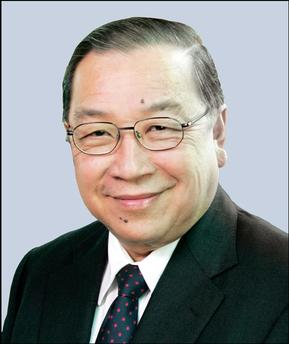
Lai Kew Chai was a Malaysian-born Singaporean judge and the longest-serving member of the Supreme Court Bench, having served for almost 25 years as a Judge.
Choo Han Teck is a Singaporean judge of the Supreme Court. He was formerly a lawyer before his appointment to the court as a judge. It was revealed in 2021 that Choo was one of the defence lawyers representing Adrian Lim, the infamous Toa Payoh child killer who was executed in 1988 for charges of murdering a girl and boy as ritual sacrifices. In 1994, Choo also defended Phua Soy Boon, a jobless Singaporean who was hanged in 1995 for killing a moneylender.
Professor Chao Tzee Cheng was a renowned forensic pathologist in Singapore. Chao was respected for solving several notorious crimes in Singapore, and raised Singapore's level of professionalism in the area of forensics.

The Arms Offences Act 1973 is a statute of the Parliament of Singapore that criminalizes the illegal possession of arms and ammunition and the carrying, trafficking, and usage of arms. The law is designed specifically to make acts of ownership, knowingly receiving payment in connection with the trade of a trafficked armaments and ammunition, as well as the unlawful usage of arms and ammunition a criminal offence.
On 30 October 2010, 19-year-old Darren Ng Wei Jie, a Singaporean student from Republic Polytechnic, was slashed by 12 youths from a rival gang after a staring incident between one of Ng's friends and one of these youths attacking him. Ng suffered from 28 knife wounds and died in Changi General Hospital five hours after the incident. The case was classified as murder, and the police arrested all the suspects. Six of them were charged with murder, but all except one were sentenced to serve lengthy jail terms with caning for culpable homicide, while the others were sentenced to varied jail terms and caning for rioting.
The President's Pleasure (TPP) in Singapore was a practice of indefinite imprisonment formerly applied to offenders who were convicted of capital offences but were below the age of 18 at the time of their crimes. Such offenders were not sentenced to death in accordance with the death penalty laws in Singapore; they were instead indefinitely detained by order of the President of Singapore. This is similarly practised contemporarily for offenders who were of unsound mind when they committed their crimes, who are thus indefinitely detained at prisons or medical facilities in Singapore.
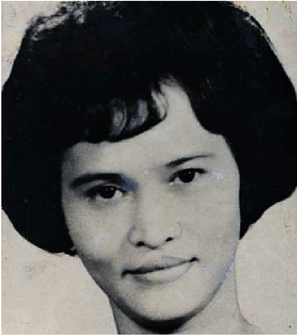
Wong Weng Siu, more commonly known as Mimi Wong, was a Singaporean bar hostess who became the first woman to be sentenced to death for murder in Singapore since its independence. Wong was alleged to have murdered Ayako Watanabe, the wife of her Japanese lover Hiroshi Watanabe, on 6 January 1970. Wong was not alone in this crime; her former husband and sweeper Sim Woh Kum had also helped Wong to restrain the victim while Wong repeatedly stabbed the woman to death.
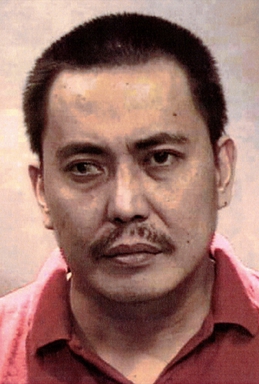
Tan Chor Jin, also known by his alias Tony Kia, was a Singaporean gang leader known for fatally shooting 41-year-old Lim Hock Soon, his former friend and nightclub owner, using a semi-automatic Beretta 0.22 calibre pistol on 15 February 2006. Tan, who had underworld affiliations and was a member of Ang Soon Tong since his early years, had also robbed the Lim family of their valuables before he escaped Singapore to Malaysia, where he was arrested ten days later. The media gave him the name "One-eyed Dragon" given that he was blind in the right eye.

The Orchard Towers double murders was the case of two deaths occurring at Balmoral Park, Singapore, before the victims' bodies were discovered at a carpark in Orchard Towers, thus the title of the case. The victims were 46-year-old Kho Nai Guan and Kho's 29-year-old Chinese girlfriend Lan Ya Ming, and they were both murdered by Kho's British employer Michael McCrea. McCrea was assisted by his girlfriend Audrey Ong Pei Ling in disposing of the bodies before they both fled Singapore to Australia, where they were caught.

Sim Ah Cheoh was a Singaporean drug trafficker of Chinese descent. She was originally sentenced to death in 1988 for the crime, for which she was arrested in 1985, and Sim's two accomplices Lim Joo Yin and Ronald Tan Chong Ngee were also arrested and received the same sentence, and like Sim, both also lost their appeals against their sentence. Subsequently, while Lim and Tan were executed on 3 April 1992, Sim was granted clemency and her sentence was commuted to life imprisonment, making her the fourth person since 1959, as well as the second female and second drug convict on death row to be pardoned from execution by the President of Singapore.

Dexmon Chua Yizhi was a material analyst and Singaporean who was brutally murdered in Singapore by his former girlfriend's husband Chia Kee Chen, who craved revenge on Chua for having an affair with his wife and thus gathered two people to help him abduct and kill Chua. The manner of his death was due to a grievous assault that caused severe fatal injuries. Dexmon Chua was 37 years old when he died at Lim Chu Kang on 28 December 2013.

Life imprisonment is a legal penalty in Singapore. This sentence is applicable for more than forty offences under Singapore law, such as culpable homicide not amounting to murder, attempted murder, kidnapping by ransom, criminal breach of trust by a public servant, voluntarily causing grievous hurt with dangerous weapons, and trafficking of firearms, in addition to caning or a fine for certain offences that warrant life imprisonment.

On 7 June 2016, 59-year-old Seow Kim Choo at Telok Kurau was murdered by her 23-year-old Indonesian maid Daryati, who stabbed Seow 94 times with a knife, resulting in Seow's death due to multiple wounds to her head and neck. Daryati also attacked and stabbed Seow's husband Ong Thiam Soon twice before she was restrained by Ong, and subsequently, Daryati was arrested and indicted for charges of murder and attempted murder. The motive behind Daryati's killing of her employer was due to her wanting to get back her passport to return to Indonesia as she was feeling homesick and missed her lesbian lover, who was working as a maid in Hong Kong.
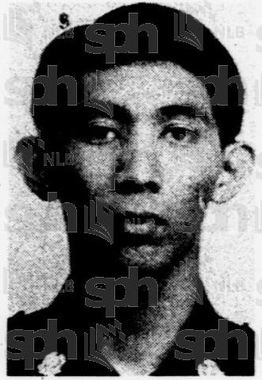
On 15 February 1989, Mirza Abdul Halim bin Mirza Abdul Majid, a 23-year-old Singaporean and police constable (PC), was shot in the head by a suspected burglar who stabbed him in the neck and snatched his service revolver before using it to shoot PC Abdul Halim. PC Abdul Halim, who was later promoted to Corporal during his hospitalization, went into a coma and died 33 hours later. The killer Ong Yeow Tian, who was an ex-convict and one of the two suspects involved in a prior housebreaking case, was subsequently engaged in a shoot-out with several other policemen but was finally arrested. Ong's accomplice was also caught and later sentenced to incarceration and caning for the burglary.
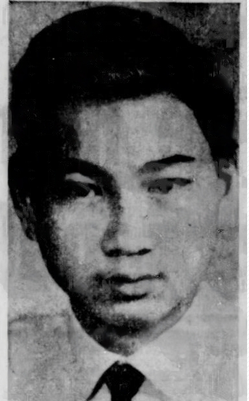
On 24 May 1968, 19-year-old Ong Beang Leck, the son of a millionaire, was last seen leaving his house. His family received a call two days later, being told by the caller that Ong was kidnapped and a ransom of S$100,000 was demanded. After a second phone call in the second week of Ong's disappearance, the ransom was reduced to S$20,000 after negotiations, and it was paid for Ong's safe return. However, after the arrest of one suspect, it was established that Ong was murdered and in the midst of investigations and subsequent capture of four more suspects, Ong's decomposed body was discovered in a manhole at Jurong. Five of the suspects were charged in relation to their roles in the kidnapping and murder of the youth, with three hanged for murder while the remaining two were jailed for abetting the abduction and possession of the ransom money as well.
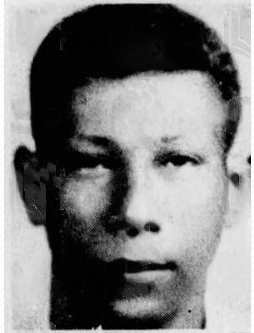
Sha Bakar bin Dawood, alias Bakar Negro, was a Singaporean seaman and armed robber who was wanted for committing an armed robbery and discharging a revolver at Thiam Siew Avenue in January 1975. In this particular case, Sha Bakar entered a brothel and threatened three people in an armed hold-up, and also wounded the three hostages by shooting his gun at them. Sha Bakar was afterwards confronted by the police, with whom he exchanged gunfire before he fled the scene. Sha Bakar subsequently ran off to Malaysia, where he was arrested by the Royal Malaysia Police at the border between Malaysia and Thailand within the same month of the shoot-out. The Thiam Siew Avenue robbery case was the sixth out of his three-month robbery spree from November 1974 to January 1975.













